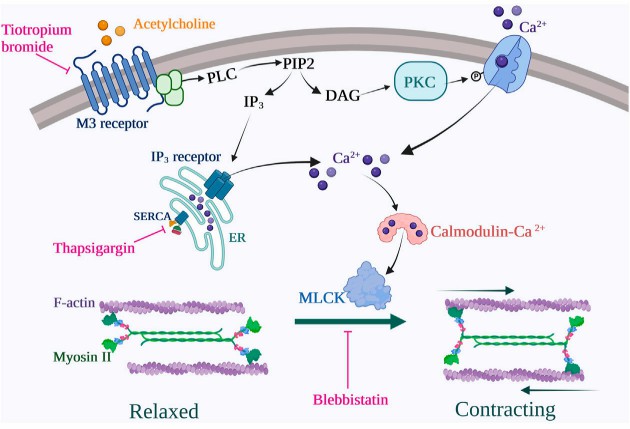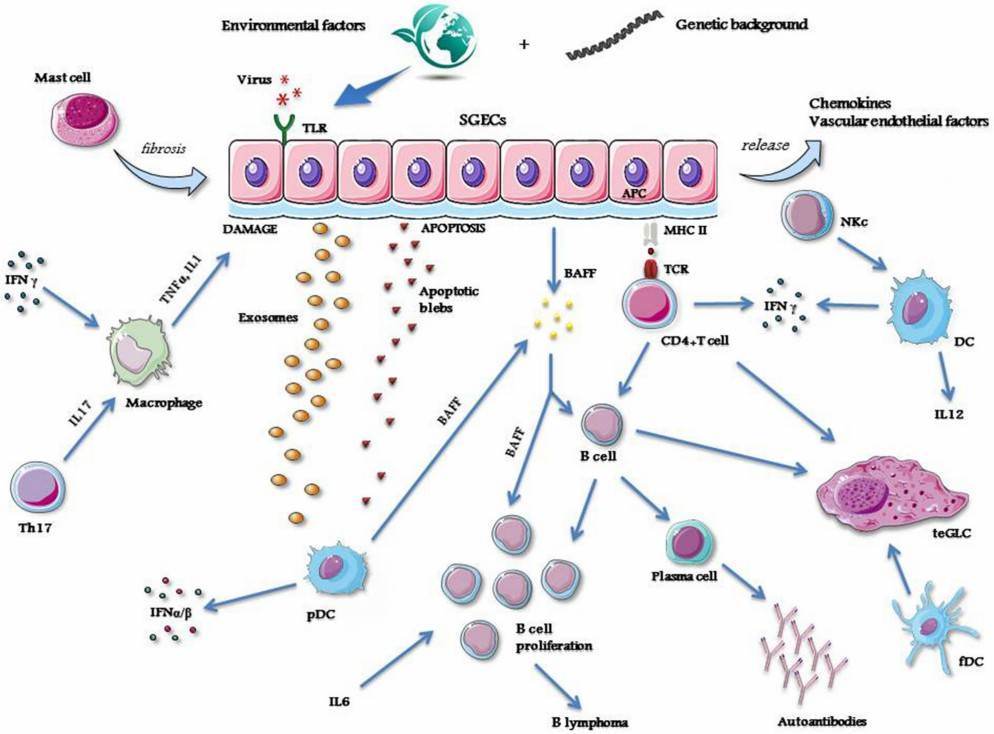NAA Services for Anti-Muscarinic 3 Receptor (M3R) Antibody
The anti-muscarinic 3 receptor (anti-M3R) is an antibody autoreactive to M3R, which is a potential indicator of sjögren’s syndrome. Over the past year, Creative Biolabs has successfully provided the high-quality customized service of related NAA (natural autoantibodies) research including anti-M3R for thousands of clients based on our diversified NAA platforms. We are confident to make sure that our professional team and service can assist global clients to attain their satisfied consequence in the shortest possible time.
Background of Anti-muscarinic 3 Receptor (M3R) Antibody
Muscarinic acetylcholine receptors actually are receptors acetylcholine (Ach), which acts as a neurotransmitter in the brain, neuromuscular junctions, and the autonomic ganglia. Muscarinic acetylcholine receptors belong to a class of metabotropic receptors that use G proteins as their signaling mechanism. By far, there are 5 subtypes of muscarinic receptors have been reported namely M1-M5. The M3 muscarinic receptors (M3Rs) mainly distribute in the brain, smooth muscles, lungs, pancreas, and secretory glands. Functions of M3Rs are diverse, which mainly include contracting smooth muscle, regulating insulin secretion, and stimulating the secretion of glands. Autoantibody against M3R (anti-M3R) has been confirmed by plenty of researches to be closely associated with sjögren’s syndrome.
 Fig.1 The role of M3R in the COPD fibrocytes signalling pathway stimulated with cholinergic/muscarinic agonists.1
Fig.1 The role of M3R in the COPD fibrocytes signalling pathway stimulated with cholinergic/muscarinic agonists.1
The Role of Anti-muscarinic 3 Receptor (M3R) Antibody in Sjögren’s Syndrome (SS)
As a typical autoimmune disease, Sjögren's syndrome (SS) mainly affects and destroys moisture-producing glands in the human body, which certainly results in a series of "dry symptoms", such as dry mouth, dry eyes, and dry skins. Severe symptoms can be manifested as cough, joint pains even thyroid problems when it attacks other parts of the body (e.g. lungs, joints, organs, and nerves). The causes of SS are implicated to inheritance, hormones, abnormal immune response, and other environmental factors. Increasing studies are trying to elaborate on the pathogenesis of SS in order to discover more efficient treatment solutions. It is indicated that immune dysfunction is the main factor causing SS, among which autoantibodies play a dominant role.
In addition to anti-Ro/SSA and anti-La/SSB autoantibodies, recent studies suggested that presence of anti-M3Rs play a potential pathogenic role in the development of SS. Acetylcholine binding to and activating M3R on salivary gland cells can induce salivary secretion, which explained that anti-M3Rs causing dry mouth in patients with SS. Anti-M3Rs binding to M3R on lachrymal gland cells could activate nitric oxide synthetase coupled to the receptors, which leads to dry eyes of SS. Therefore, anti-M3R also is a useful diagnostic biomarker and therapeutic target for SS.
 Fig.2 The production of autoantibodies in primary Sjögren's syndrome.2
Fig.2 The production of autoantibodies in primary Sjögren's syndrome.2
Let's Work Together to Fulfil Your NAA Project
In terms of anti-M3R antibody and similar NAA, Creative Biolabs has accumulated abundant relevant research experience. Moreover, aided by our well-established platforms and professional scientists, we are proud to offer extensive NAA services, from NAA detection, NAA profiling, to NAA epitope mapping. Other a full range of NAA products and applications, custom products and services are also available if you need.
Therefore, if you are working on NAA researches or you have any question on NAA related sections, just contact us and tell us what you are confused or interested in. Our professional teams and specialized scientists are able to provide the best and comprehensive services at all times.
References:
- Henrot, Pauline, et al. "Muscarinic receptor M3 activation promotes fibrocytes contraction." Frontiers in Pharmacology 13 (2022): 939780.
- Vitali, Claudio, et al. "Management of Sjögren's syndrome: Present issues and future perspectives." Frontiers in Medicine 8 (2021): 676885.

